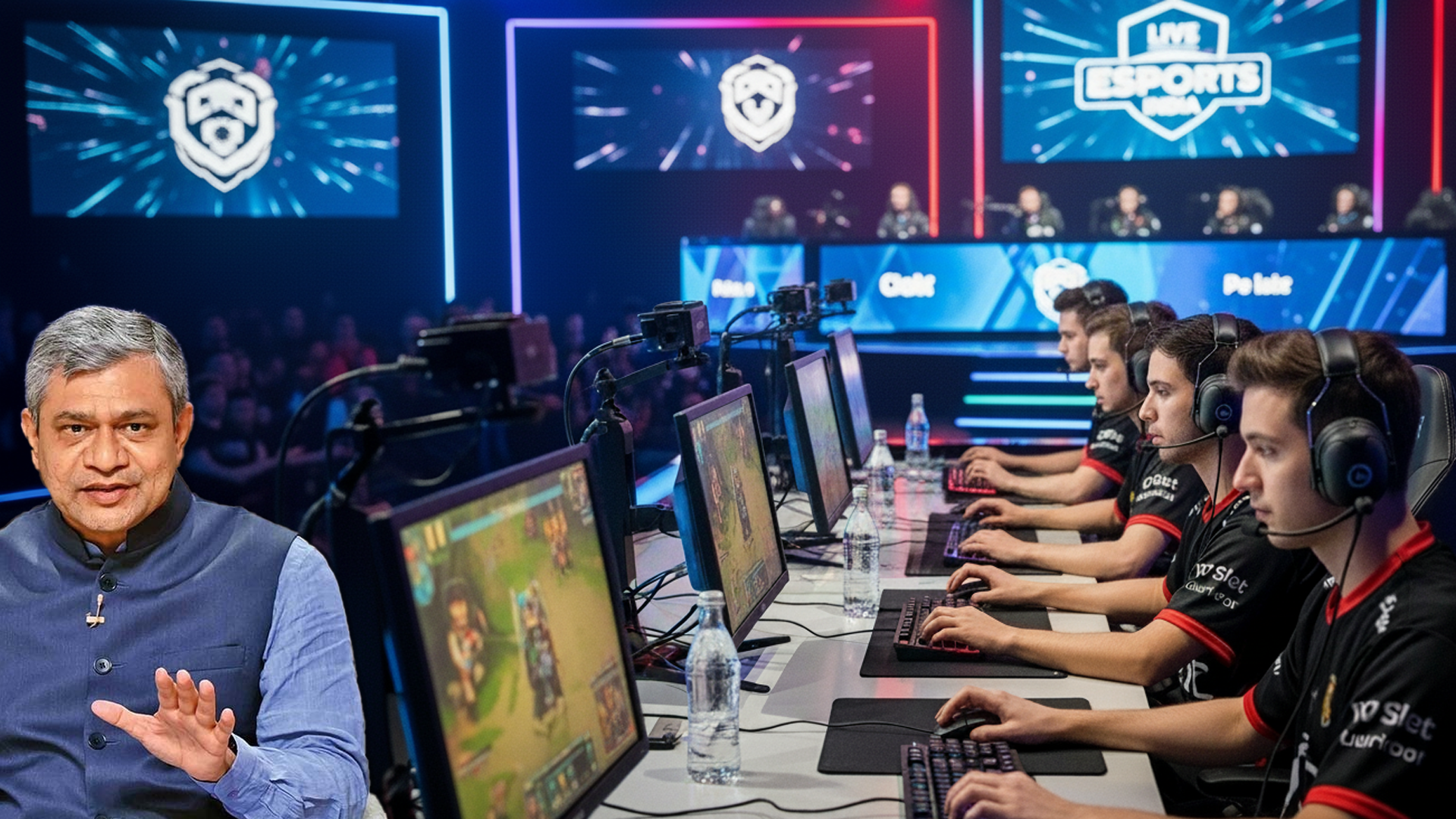IT Minister Urges Smooth Shift to E-Sports as Real-Money Gaming Ban Takes Effect
Platforms like Dream11, MPL, PokerBaazi, and Zupee have paused deposits and are focused on enabling withdrawals to safeguard customer funds.

IT Minister Ashwini Vaishnaw, along with senior government officials, met online gaming industry leaders on September 1 to discuss the implications of the newly enacted Promotion and Regulation of Online Gaming Act, 2025. The law, which received presidential assent in August following one of the swiftest legislative moves in recent memory, bans all forms of real-money gaming while creating a central regulatory framework to oversee permissible formats such as e-sports and online social games.
During the meeting, officials emphasized the importance of ensuring a smooth transition for companies impacted by the ban and securing consumer interests during the phase-out process. Industry representatives said they are winding down real-money operations and coordinating with payment intermediaries to ensure users’ wallet balances are safe. Platforms like Dream11, MPL, PokerBaazi, and Zupee have paused deposits and are focused on enabling withdrawals to safeguard customer funds.
The sudden regulatory overhaul has already caused significant disruption across the industry. Mobile Premier League (MPL) has announced plans to lay off 60 percent of its staff in India, while other platforms have halted their flagship real-money operations. The ban is expected to displace thousands of workers, with more than 2,000 professionals already looking for employment as the sector reshapes itself. These developments have cast uncertainty over what was projected to be a multi-billion-dollar industry by the end of the decade.
The Act establishes a National Online Gaming Commission to regulate and promote non-cash gaming, though questions remain over the finer points of enforcement. Industry groups, such as the All India Game Developers Forum, have warned of compliance confusion, particularly around hybrid formats that blur the line between skill-based e-sports tournaments and social gaming experiences. It is still unclear whether a new regulatory authority will be created or if existing agencies will assume this role.
Despite the disruption, the government views the law as a crucial step to curb the harmful effects of real-money gaming, which Vaishnaw likened to substance addiction. He stressed that players are victims rather than offenders, and the ban aims to reduce financial exploitation while bringing long-overdue regulation to a rapidly growing sector.
Some industry observers see potential opportunities in the new framework. With real-money games removed from the market, traditional gaming developers and e-sports platforms expect a surge in interest and investment. The hope is that the shift will fuel innovation, diversify India’s gaming ecosystem, and strengthen its reputation as a hub for creative game development rather than cash-driven competition.
As the dust settles, the industry faces a period of recalibration. The government’s challenge now lies in balancing strict consumer protections with fostering growth in e-sports and social gaming, which could redefine the future of digital entertainment in India.